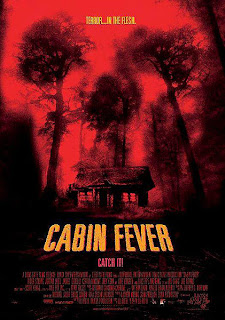"The Night House" atmospheric, smartly constructed, and featuring a great Rebecca Hall
The Night House (2021)
“The Night House” is atmospheric and smartly constructed, but it is not entirely the ghost story audiences will be expecting. For a filmmaker who’s long been on the indie horror circuit since helming 2007’s “The Signal,” segments of horror anthologies “V/H/S” and “Southbound” and then 2018’s freaky “The Ritual,” kudos to director David Bruckner for constantly toying with expectations and genre tropes. Like so many horror films of late, Bruckner’s film is about grief and how we process death differently, and who better to live through these thematic ideas than Rebecca Hall? With a devastatingly great lead performance by Hall, “The Night House” is a classy horror drama that doesn’t just aim to deliver fleeting bumps in the night. It’s in it for the long haul, keeping you up at night with the big question: what happens, if anything, after we die?
Rebecca Hall is absolutely captivating, using every shade of humanity to play Beth, a New York schoolteacher who’s reeling from the unforeseen suicide of Owen (Evan Jonigkeit), her architect husband of 14 years. On the last day of his life, Owen took their boat out on the lake and shot himself with a handgun Beth didn’t even know they owned. All that was left was a cryptic suicide note. Beth is trying to keep it together, even if coping means drinking every night and continuing to live in the lakeside house Owen built with his own hands. One night, Beth wakes up to the downstairs stereo turning on a song that reminds her of Owen. Everything she begins experiencing may or may not be real. Who is the woman in the photos on Owen’s phone? Why is there an exact replica of her house with a reverse floor plan across the lake? Is there a supernatural presence in her house, and if so, is it Owen or something else? If you think you know what’s going on, you don’t.
The parts making up “The Night House” may be familiar—there’s a little “What Lies Beneath” here and some of “The Invisible Man” there—but the foundation built from those parts is layered and (almost) airtight. It begins and ends with the character of Beth. She’s vulnerable, blunt, thoughtful, darkly funny, and we’re with her every step of the way. Before Owen’s suicide, Beth had already experienced more than a brush with death herself when her heart stopped for four minutes after a car accident. Beth certainly has her opinions on the matter, saying there was no white light at the end of the tunnel, “just tunnel.” She might not have known her husband as well as she thought, and Rebecca Hall nails not only the sorrow of her grief but the anger and frustration. A small, cutting moment involving a parent coming into Beth’s classroom to discuss her son’s less-than-stellar grade is riveting, as is one where Beth joins colleagues from school for a drink. When it comes to learning about how Owen took his own life, director David Bruckner and writers Ben Collins and Luke Piotrowski (2017’s “Super Dark Times”) relay information organically and efficiently without it feeling like an exposition dump. Through subtle writing and nuanced performance, Hall is able to give us all we need to know about Owen, or at least her perception of Owen. The supporting cast is strong as well, being rounded out by Sarah "not Kristen Bell" Goldberg, as friend and fellow teacher Claire; Vondie Curtis-Hall, as across-the-lake neighbor Mel; and Stacy Martin, as Madelyne, a woman who casually knew Owen.
Remove the supernatural goings-on and “The Night House” would still be a chilling meditation on death. Nevertheless, an expert sense of dread starts during the witching hour in Beth’s house full of windows. Director David Bruckner and cinematographer Elisha Christian make full use of empty space within the titular house, finding scares in simple architecture and Rorschach-like silhouettes within that architecture. His use of jump scares is also sparing and without any need for bombastic musical stings, and his timing with editor David Marks is exactly what it should be.
Once Beth begins digging deeper and deeper into the secrets Owen kept, the film remains tantalizing, even in its revelations concerning the occult and dark arts. It certainly keeps one guessing and forming different interpretations, but the script never decides how much—or how little—the mystery should be explained or left with a bit more ambiguity. When the metaphor is made overly literal, it could have been more ambiguous, and when some plot points are too ambiguous, they could have been more literal. These plot particulars are small nits to pick, though, when the journey is such an effectively disorienting psychological unraveling, and Rebecca Hall sells it all with so much gravitas that we don’t need to suspend much disbelief. It’s altogether satisfying to find a film that dares to transcend genre, never once spoon-feeds its audience, and doesn’t end on a cheap jolt. If the viewer is willing to actively give his or her attention over, “The Night House” is one that's bound to take up residence in the mind.
Grade: B
Searchlight Pictures is releasing “The Night House” (110 min.) in theaters on August 20, 2021.











Comments
Post a Comment